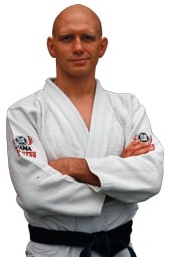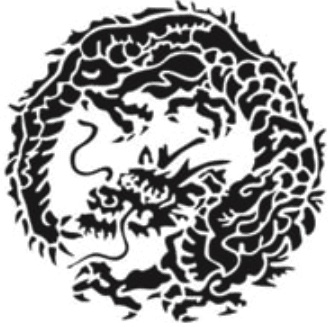
What is Ringworm?
Ringworm is actually a fungus, not a worm. The first symptom of ringworm is severe localized itchiness. Basically it starts out as a little, red, itchy pimple. Soon this grows to solid pink circles on the skin, usually between the size of a pimple and a quarter. The border of these circles will eventually develop scaly red skin and the center become paler. Related forms of ringworm can also occur on the scalp (causing hair loss), the crotch (‘jock itch’) and the foot (‘athlete’s foot’).
If you want to see what serious cases of ringworm look like go to https://images.google.ca/images?q=ringworm&hl=en&btnG=Google+Search and shudder! Just remember that all ringworm starts small – be suspicious of an itchy or scratchy area, especially when it associated with a small red area.
Take ringworm seriously. It’s ugly, itchy and very contagious. Once someone in a team gets infected with ringworm it spreads like wildfire and stays around for a very long time unless strict measures are taken quickly. A ringworm infection at a club can cause people to quit: do you really want less people to train with?
With ringworm there is usually a 1 to 2 week incubation period between exposure and visible infection. The fungal spores that spread ringworm can survive on a variety of surfaces for a long time, so eradicating this sucker is really difficult. To make matters worse, some people are asymptomatic carriers meaning that they carry the infection and can infect others but don’t have the characteristic skin markings.
If being infected with ringworm doesn’t bother you too much then think about your training partners, ESPECIALLY those training partners who have children. Children are very susceptible to ringworm and if it gets in their scalps it can cause permanent scarring and baldness. The standard treatment for ringworm of the scalp in children is 6 weeks of prescription oral medication that has potentially serious side effects, so PLEASE be considerate.
If you have ringworm:
Stay off the mat. This is the most difficult part of the treatment for many grapplers, who just want to keep on training. Stay off the mats until your ringworm is under control or you’ll turn your infection into a club-wide epidemic. After the red circles have cleared up the grappler is no longer infectious and can return to training. It usually takes about a week to treat if you catch it early; delay treatment and it could take a lot longer.
Simply covering up the infected sites is NOT sufficient! Many times people will just put some tape over the itchiest ringworm sores and go train anyhow – this is not cool. For one thing the offenders in question might not have noticed every single sore, and also they ave certainly been scratching those sores all day, spreading fungal spores to their hands and any other bodypart they touch with their hands. Stay off the mats.
Treat the infection with an antifungal cream. There are many antifungal creams and gels available. ‘Lamisil’ is one of the best creams, but usually requires a doctor’s prescription.
There are also over-the-counter medications like tolnaftate (‘FungiCure’, and others). I haven’t found the clotrimazole products as effective – sometimes all they do is suppress the fungus. Most products are applied twice daily. Some creams also contain hydrocortizone or cortate, but this just reduces the inflammation and doesn’t actually kill the fungus. As a rule of thumb, if your ringworm isn’t a lot better after one or two weeks of using over the counter anti-fungal creams go to a doctor or walk-in clinic and ask for a Lamisil prescription.
You can also take prescription oral medications (like an oral form of lamisil or ketoconazole) for severe and/or stubborn cases. These may be hard on your liver and you should take them with care.
Keep on applying the topical medication for one week after your infection clears up! Often it appears that the infection is gone, but the ringworm is actually only dormant and will soon come back. Apply the cream or gel for at least one additional week. If you are taking orals take the full course of prescribed anti-fungal medications.
Change your bedding every couple of days and don’t share towels – your training partners may be pissed if you infect them, but that is nothing compared to how upset your spouse or ‘special friend’ is going to be if he/she catches it. Besides, if you are treating your ringworm but sleeping in the same old bedding or using the same towel every day you are basically re-infecting yourself. Use your bath towels and wash cloths only once, and then wash them.
If there is ringworm going around your club:
Wash the mats before or after every practice. Any cleaning supplies store will stock something to disinfect floors and mats, just make sure it is anti-fungal as well as anti-bacterial and anti-viral. You can also use a dilute bleach solution, but the commercial cleaning solutions are not very expensive.
Inspect your partners carefully and refuse to wrestle someone with ‘the worm’. Instructors and senior students have an extra responsibility to educate club members and, if necessary, to bar infected people from training. Unfortunately some people can carry and spread ringworm without exhibiting
Don’t let people walk on the mats in their street shoes. Ringworm lives in the soil outside and can be transmitted to the mat by shoes. The fungus enters into the skin through scratches and abrasions (common in grappling) and then the trouble begins. Once the epidemic has begun, the main mode of transmission is probably person-to-person.
Shower thoroughly as soon as possible after every practice. There may be some advantage to using an anti-dandruff shampoo as a body wash to ensure that the ringworm is gone. ‘Selsum Blue’ is a good choice.
Once a week use ‘Nizoral’ shampoo – Nizoral a very strong anti-fungal/anti-dandruff shampoo containing ketoconazole. A dermatologist suggested this to me to make sure that I was killing off any potential new infections picked up from the mats. Lather up your hair and your entire body, leave the lather on your body for a full 5 minutes, and then rinse very thoroughly. Dry your body and apply a cream moisturizer – this shampoo can really dry out your skin. For this reason I do NOT recommend using Nizoral more than once a week.
Wash your gi, rashguards, kneepads, towels, etc. after every practice. The fungal spores can live in these items.
Additional information on ringworm can be found at the following sites:
www.bcwrestling.com/Groups/Coaches/Disinfecting%20Wrestling%20mats.pdf
www.nlm.nih.gov/medlineplus/ency/article/001439.htm
www.luhs.org/health/topics/derm/ring.htm
www.ideas.health.vic.gov.au/bluebook/ringworm-info.asp


